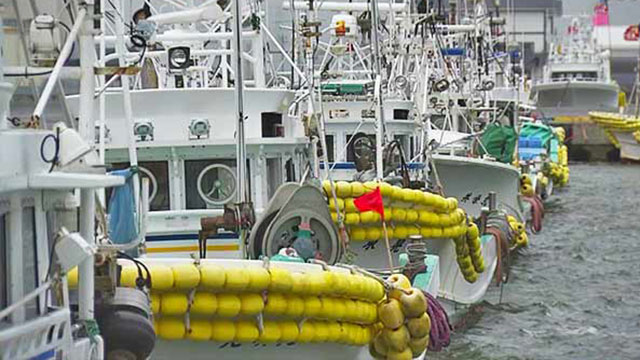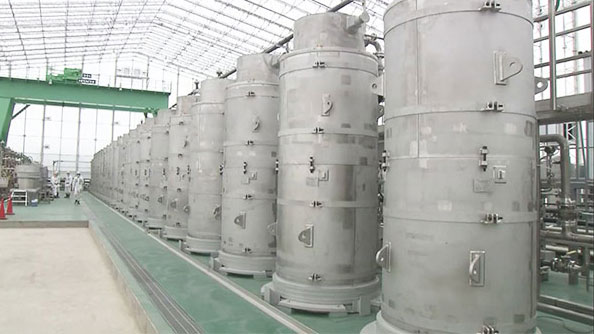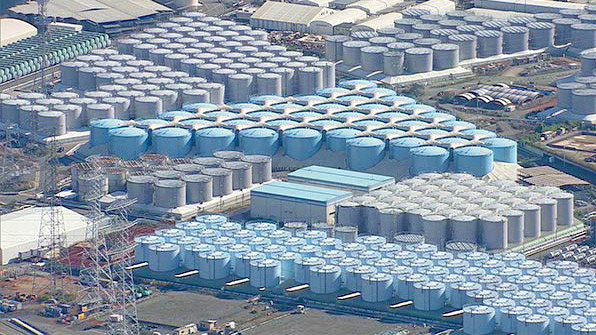It was announced last month that the treated water will start being released in about two years. The water is to be diluted to lower the concentration of radioactive materials such as tritium to levels that fall below those outlined in national regulations.
For many of Fukushima Prefecture's residents, the news came as a severe blow. It's been more than a decade since their lives were upended by a triple meltdown at the plant following a massive earthquake and tsunami.
Economic effects
For those who rely on the ocean to make a living, the decision is akin to a gross betrayal. Six years ago, the government and the plant's operator, Tokyo Electric Power Company, promised that treated water would not be disposed of without the acceptance of relevant parties. Last month's announcement came without the understanding of Fukushima's fisheries industry.
Catch volume has been gradually recovering since the disaster on March 11, 2011, but some consumers remain hesitant. Some overseas trading partners still impose import restrictions even though pre-shipment safety checks for radioactivity are a matter of course.

Safety fears pose challenge
The government says it will work to counter safety concerns before discharging the treated water. That includes strengthening a system for monitoring oceanic radiation levels, and calling on the International Atomic Energy Agency to disseminate objective information both in Japan and abroad. The government also pledges to boost tourism and sales of Fukushima specialty produce.
Prime Minister Suga Yoshihide met with Fukushima Governor Uchibori Masao behind closed doors a few days after the announcement about the treated water. Suga reportedly said he understands residents' concerns – especially those in the fisheries industry.
But Takahashi Kazuyasu, a 42-year-old fisher in Soma City, isn't convinced. "The government shelved the issue for a decade, and didn't even call for a national discussion," he says. "Does anyone really believe the pledge to counter fear-mongering?"
Koyama Ryota, a professor at Fukushima University who served on a government panel to address the disposal of treated water, has similar sentiments. “Pressing ahead with the release will only encourage further fear-mongering. It’s now vital that the government builds a relationship of trust with the public,” he says.

Calls for better compensation process
In the meantime, storage space for the wastewater at Fukushima Daiichi is close to running out. Every day, 140 tons is treated using what is known as the Advanced Liquid Processing System. In total, there is now 1.25 million tons being kept in more than 1,000 tanks. The government says there will be no room for any more in a matter of years.
Part of the Japanese government's message is that discharging water containing tritium into the ocean is nothing new. After being diluted to meet safety standards, it is common practice at nuclear plants in Japan and many other countries. But Fukushima – and the stigma attached to the nuclear disaster – poses a unique set of problems.
The government is calling on TEPCO to provide compensation, but Professor Yokemoto Masafumi at Osaka City University says it's still unclear who will get what – especially after the treated water is released. "A wide range of areas and businesses will be affected, but it won't be easy to individually prove that damages stem from the release," he says.
A raft of existing compensation claims regarding Fukushima Daiichi suggest a rocky road ahead. A total of 19,163 cases were completed through the Nuclear Damage Dispute Resolution Center between 2014 and last year, but TEPCO is refusing to accept settlement proposals for more than 50.
Many Fukushima fishers say they don't want to rely on compensation to make ends meet. They hope to make their living from the ocean, as they did before the accident.
Yokemoto says the utility must take a more open approach. "It will be important not to impose strict requirements for providing evidence, and sincere discussions with claimants will be crucial if their understanding is to be earned."



